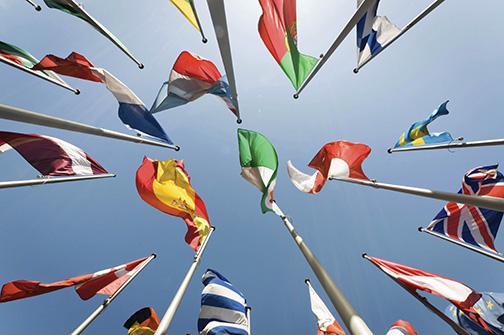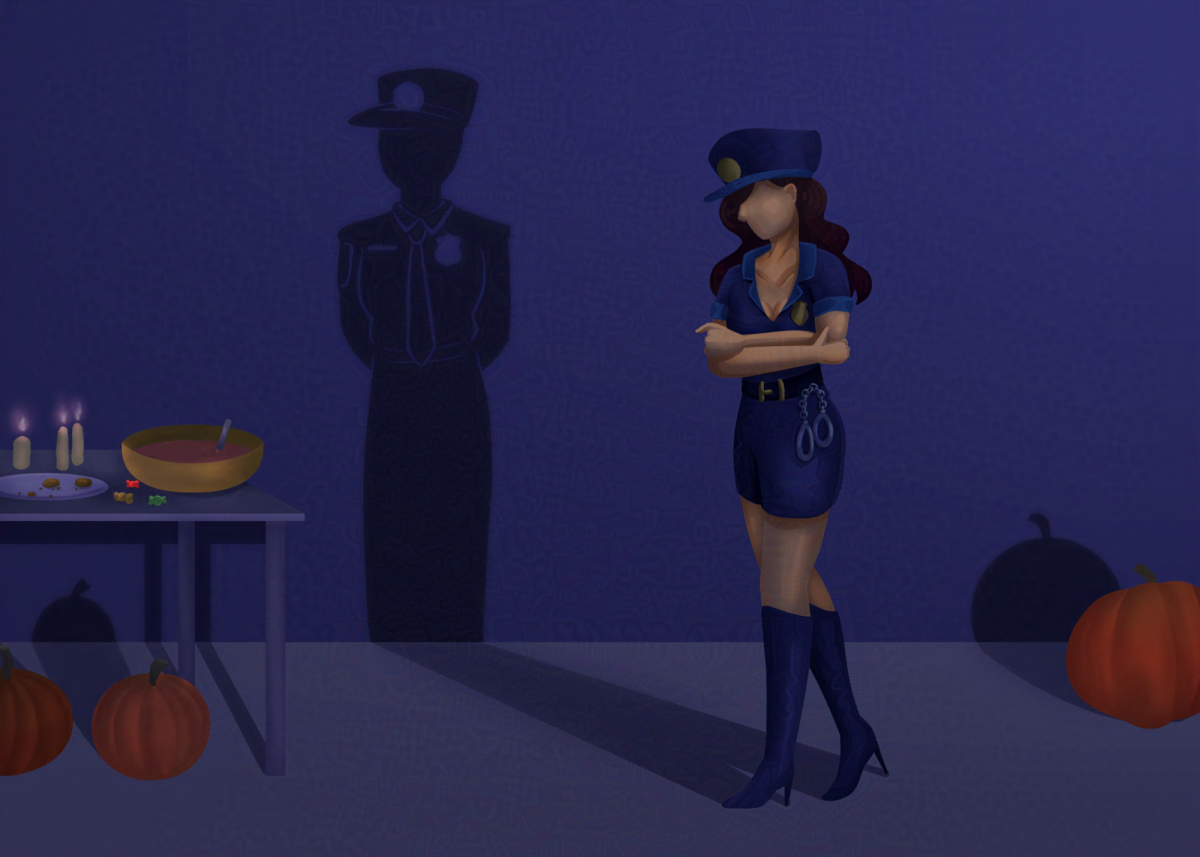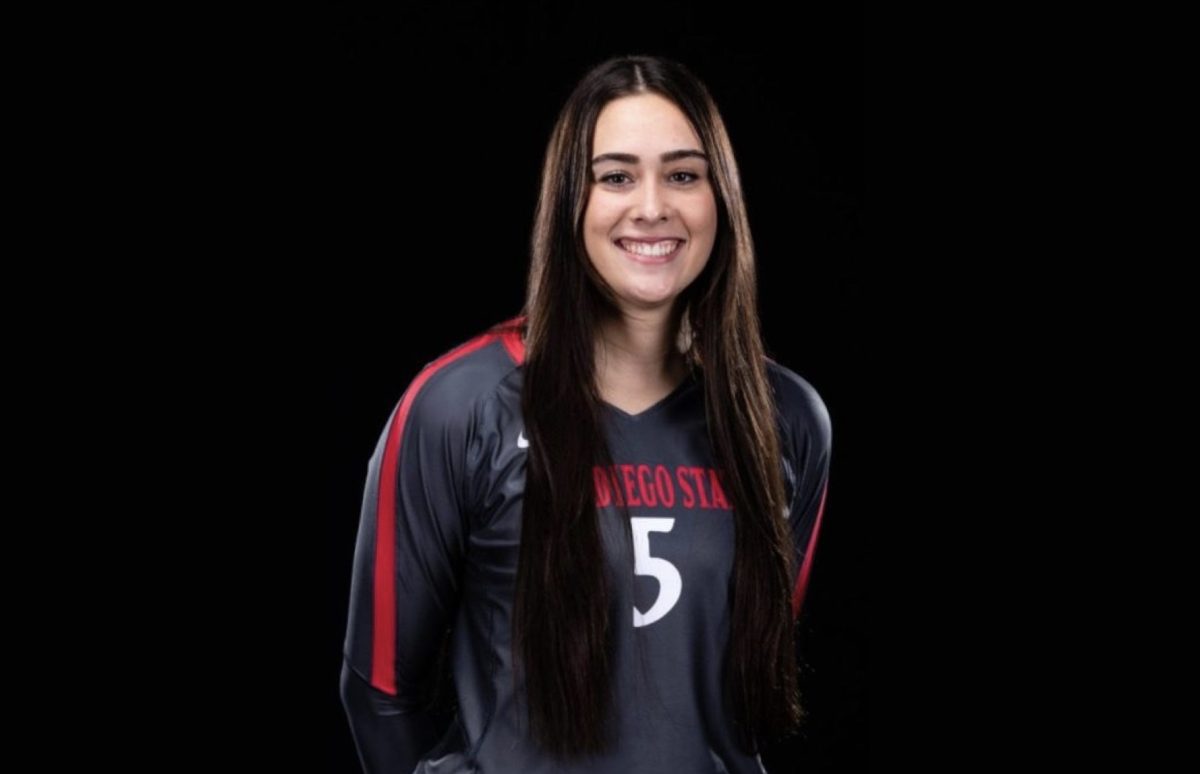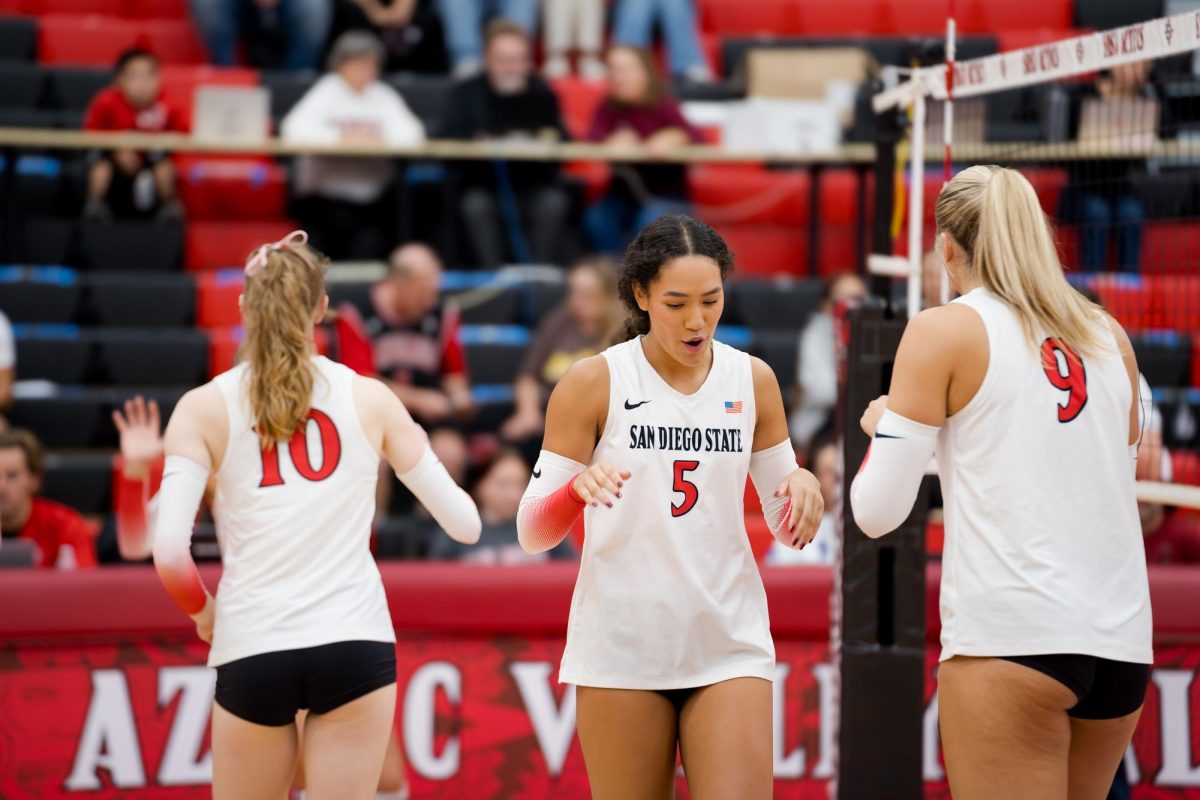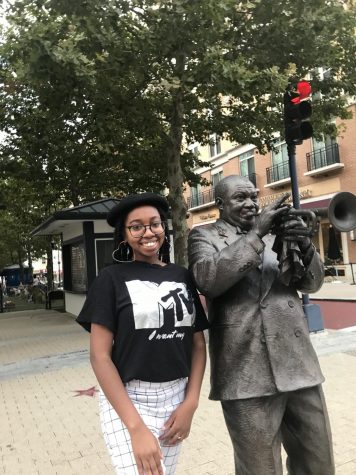As a black woman, I naturally look for inclusive spaces and it is beneficial for both my mental health and spiritual development for me to conduct this practice regularly. I can look around my classrooms here at San Diego State and see many people of color comfortably, but there are often very few black students in my classrooms. There have been too many instances where I have been in a room full of people of color, and yet I have been the only black person in the room.
I remember on my first day of my freshman year at SDSU and I was the only black person in my RWS 100 class. It was my first college class ever, so I didn’t know what to expect. But once the class started and I looked around the room, I saw that I was the only person who looked like me. I had never experienced that before. It was only a few minutes into my college career where I naturally felt an incredible amount of pressure to represent all of my people, my beliefs and my history in the classroom.
I tried, of course, to rest in the fact that there were other people of color in my class, but it wasn’t the same and it certainly didn’t help me to adjust any easier. Instead, it was a culture shock that followed me through my college career at SDSU.
In my second class on the first day of my college career, again, I was the only black person in my class, and the pressure to be “the face of the race” was back. Only, this time, it stuck with me and educating my class about the black experience was almost like a duty I had delegated to myself to carry out.
In light of Black Women’s History Month, I want to shed light on a problem not only felt by me but among many in the SDSU black community as well. In an effort to promote diversity on campus, people of color and minority groups are often lumped together by the university administration and other campus officials without even realizing it; but addressing inclusive issues effectively will require specific recognition of black issues and black people.
For me, using the term “people of color” feels like I can’t be my true and authentic self — almost as if I had to hide a crucial part of me or to not tap into the overall essence of my blackness. Describing myself as a “person of color” feels like walking into a space with an apology hanging around my neck for any offense my blackness may cause.
Although each minority group faces its own challenges on a day-to-day basis, a “one size fits all” mentality toward diversity takes away the specific needs of our most vulnerable communities.
The term “person of color” is used in attempts to unify non-white people in their fight for racial justice in America. However, black people are often ignored and looked over when it comes to the allocation of that justice. We aren’t taken seriously. We are laughed at — the butt of the joke — and simply disregarded.
I believe black people are ignored in the discussion of people of color because the term still bases value on one’s proximity to whiteness. Non-white is not synonymous with black. “Women of color” does not mean black, either. Too often, when a person or brand uses these labels, it excludes black people with or without intention. Other minority groups do not face the same challenges and struggles as black people do and people who use these broad terms may not realize that.
I’m not saying the use of the term, “people of color,” itself is absolutely illegitimate because there are plenty of situations where it is appropriate to use the term. For example, if we are talking about why Hollywood should take greater steps for inclusion and diversity, it makes perfect sense to use “people of color” to describe the issue.
However, if we are raising questions about the lack of Caribbean representation, specifically, in films, using “people of color” evades the fixed issue and doesn’t address the problem at hand directly. Specifying the need for more Caribbean representation in film properly centralizes the concerns of the Caribbean film community and articulately explains the matter at hand.
Another reason why the term “people of color” is harmful to black people in particular is because it perpetuates the history of erasing our culture. Many non-black people of color can trace their family to a specific land or country and its associated cultures such as Latin American countries, Asian countries and others. Black people, specifically black Americans, often cannot do the same because of the cultural destruction associated with chattel slavery.
The black experience is a culture defined by defying the odds in the face of adversity. The common fight of all black people — no matter the socioeconomic background — has become our culture as we know it best. White and other non-black people of color are allowed to embrace their cultural identities in a way black people cannot.
I encourage you to use the term “people of color” in the proper context and when you are speaking about or referring to a specific group of people in mind, it is best to simply state which group exactly to avoid a plethora of discrepancies.
Identifying as black, I would prefer to be called black over a “person of color” any day. It’s who I am, I take pride in it and it’s something I cannot change.
Trinity Bland is a sophomore studying journalism. Follow her on Twitter @trinityaliciaa.




